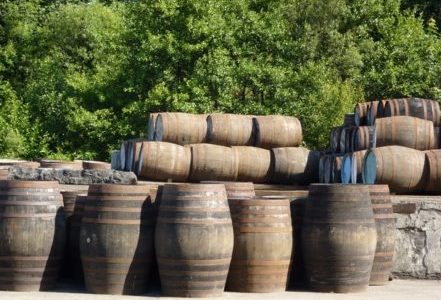
Scotch whisky
We call it ‘whisky’, the world calls it ‘Scotch’, but the production of Scotch whisky is by law purely Scottish. The Scotch Whisky Regulations 2009 state that for a whisky to be called ‘Scotch’, it must be made entirely in Scotland; must be matured in oak barrels; be at least 40% abv. at bottling stage; and comprised only of malted barley, water, yeast, other grains as permitted and caramel for colour if desired. No other type of whisky can be produced in Scotland.
It is thought that the first whisky was made in Ireland more than five hundred years ago and the name ‘whisky’ derives from the Gaelic ‘uisge’. Irish whiskey (note the different spelling) is distilled in a different way to that used in Scotland, where the emphasis is more in the blending. Each distillery closely guards their particular recipe and the stillman is not allowed to taste the whisky, for tax reasons, so assesses the quality by his own skill and judgement.
The Scotch whisky industry is driven by over a hundred distilleries and in 2018 it was worth £4.7 billion. Added to this is the tourism sector, with two-thirds of distilleries offering tours around their premises with tastings, talks and tutorials.
(Image at Fort William distillery: Martin Horsfall at geograph.org.uk / CC BY-SA 2.0)
